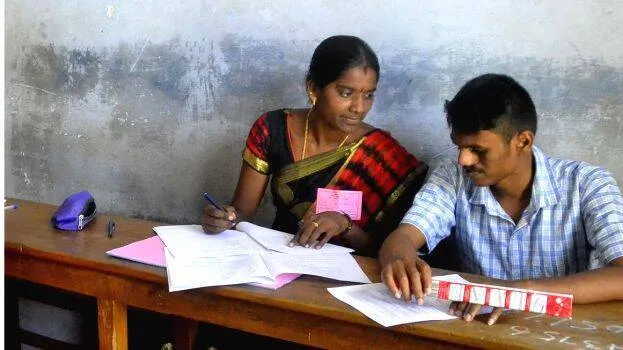

The famous saying, “To err is human, to forgive is divine,” was written by English poet Alexander Pope. But when a mistake affects thousands of people, forgiveness alone is not enough- it must be corrected. When such a correction happens, a mistake born out of ignorance can turn into an act of greatness. Recently, Kerala Kaumudi highlighted a strange rule introduced by the Samagra Shiksha Kerala authorities. The rule said that if students with learning disabilities wanted exam assistance, the student, parent, and teacher had to sign a statement declaring that the disability was “lifelong.” Journalist Arun Prasannan reported this issue, and soon after the report was published, the government withdrew the controversial rule and issued a new application form. This is a timely and commendable decision. This move brought relief to hundreds of children with learning disabilities and their parents.
Children with learning disabilities face the most difficulty during exams. The same is true for students with visual impairments. Because of challenges in expressing their knowledge in writing, these students are allowed certain aids, such as a helper or a scribe during SSLC and Higher Secondary exams. To get this help, students must submit a medical certificate confirming their IQ (Intelligence Quotient) and SQ (Social Quotient) as verified by a medical board. However, the new rule required that the student, parent, and teacher declare in writing that the disability is lifelong- a clearly unreasonable demand.
Learning disabilities are neurological conditions. They can cause problems such as writing the wrong letter, reversing letters, struggling with arithmetic, or difficulty with graphs and spatial tasks. In the past, such issues were wrongly seen as a sign of laziness or lack of intelligence. Today, however, science recognises these as specific learning difficulties that can often be managed with the right training and therapy. In addition to exam support, students with learning disabilities can also be exempted from certain types of complex math problems that they find particularly hard. Most of these conditions are identified early and can improve significantly with proper intervention. Therefore, labelling them as “lifelong disabilities” was completely unscientific.
According to Samagra Shiksha Kerala state director Dr. A.R. Supriya, the order had been issued by district coordinators, not by the state-level office. She said the matter would be investigated to find out how such an order was released. There were also serious concerns that signing such a declaration could later affect the child’s future, for example, when applying for jobs or a driving license. Since disability certificates are now linked to Aadhaar, the label “lifelong disability” could have become a permanent mark against the child. Fortunately, the government acted quickly by canceling the order and releasing a new application form. With that, the fears of students and parents have been put to rest.